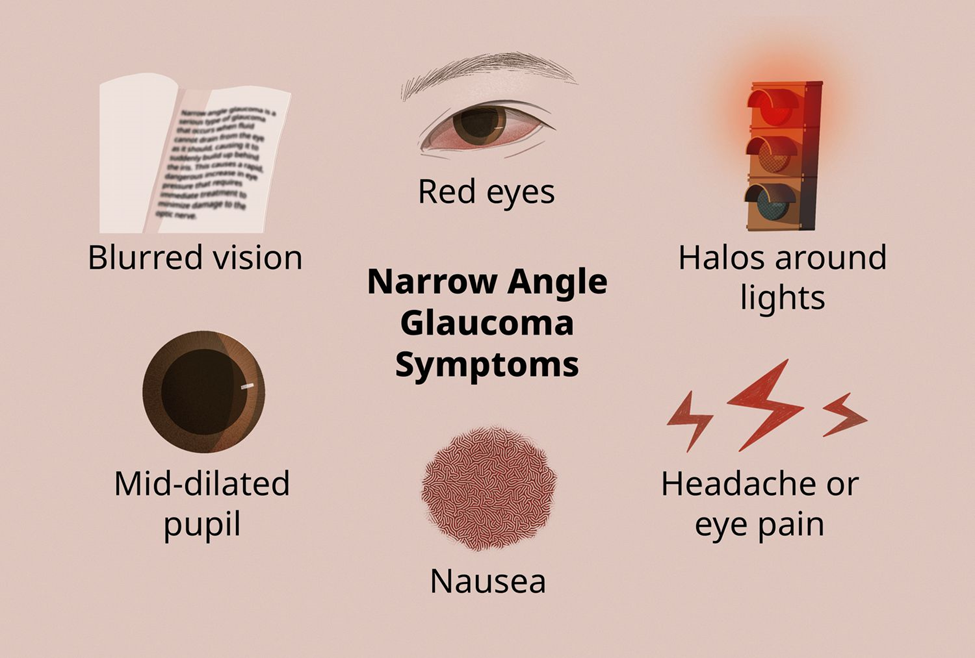An adult who was recently diagnosed with glaucoma tells the nurse, "it feels like I am driving through a tunnel." The client expresses great concern about going blind. Which nursing instruction is most important for the nurse to provide this client?
Eat a diet high in carotene.
Wear prescription glasses.
Avoid frequent eye pressure measurements.
Maintain prescribed eye drop regimen
The Correct Answer is D
A. Eat a diet high in carotene:
While a healthy diet is important for overall well-being, there is no evidence to suggest that a diet high in carotene specifically prevents or treats glaucoma. The focus in glaucoma management is on intraocular pressure control.
B. Wear prescription glasses:
Prescription glasses may be beneficial for addressing refractive errors, but they do not specifically address the management of glaucoma. The client's concern about driving through a tunnel is more likely related to changes in peripheral vision associated with glaucoma.
C. Avoid frequent eye pressure measurements:
This is not the most important instruction. Monitoring intraocular pressure is a crucial aspect of glaucoma management, and the frequency of measurements is determined by the healthcare provider. Regular monitoring helps assess the effectiveness of treatment and disease progression.
D. Maintain the prescribed eye drop regimen:
This is the correct answer. The most important instruction for the client is to adhere to the prescribed eye drop regimen. Medications, often in the form of eye drops, are commonly used to lower intraocular pressure and manage glaucoma. Consistent use of prescribed medications is critical for controlling the condition and preventing further vision loss.

Nursing Test Bank
Naxlex Comprehensive Predictor Exams
Related Questions
Correct Answer is B
Explanation
A. Evaluate the urine for a strong odor.
While evaluating urine for a strong odor can provide some information about a possible urinary tract infection (UTI), it is not the most immediate concern. The priority in this case is to assess for signs of systemic infection, and checking for a strong odor can be done later.
B. Measure her temperature and pulse rate.
This is the correct choice. Measuring temperature and pulse rate is a critical initial step to assess for signs of systemic infection. Fever and an elevated pulse rate can indicate that the infection may have spread beyond the bladder, possibly involving the kidneys.
C. Test her urine for the presence of hematuria.
Testing for hematuria (blood in the urine) is an important diagnostic step for a UTI, but it is not the first priority. Vital sign assessment takes precedence to determine the severity of the condition and the need for urgent intervention.
D. Palpate the right flank for tenderness.
Palpating the right flank for tenderness is a relevant physical assessment to check for kidney involvement, which is important in cases of suspected pyelonephritis. However, assessing vital signs is a more immediate and critical step to determine the severity of the condition.
Correct Answer is A
Explanation
A. Family members can help with regular foot exams:
This is the correct answer. Regular foot exams are essential for individuals with diabetes, especially those with peripheral neuropathy. Family members can assist in identifying any changes, cuts, or wounds on the feet that the client might not be able to perceive due to neuropathy.
B. Heating pads are useful if on the lowest setting:
The use of heating pads is generally not recommended for individuals with peripheral neuropathy. They may have reduced sensation, making it difficult to detect if the pad is too hot, leading to the risk of burns.
C. Aching feet may be soaked in lukewarm water for one hour or more:
Prolonged soaking of feet is not advisable, as it can lead to maceration of the skin and increase the risk of infection. A short, lukewarm foot soak is generally acceptable, but the duration should be limited.
D. Shoes should be worn outside the house, but it is fine to be barefoot inside:
Individuals with diabetes and peripheral neuropathy should wear protective footwear both inside and outside the house to prevent injuries and reduce the risk of complications.
Whether you are a student looking to ace your exams or a practicing nurse seeking to enhance your expertise , our nursing education contents will empower you with the confidence and competence to make a difference in the lives of patients and become a respected leader in the healthcare field.
Visit Naxlex, invest in your future and unlock endless possibilities with our unparalleled nursing education contents today
Report Wrong Answer on the Current Question
Do you disagree with the answer? If yes, what is your expected answer? Explain.
Kindly be descriptive with the issue you are facing.
